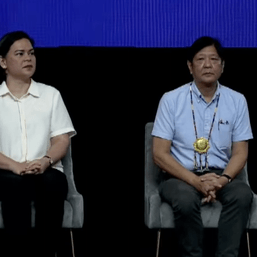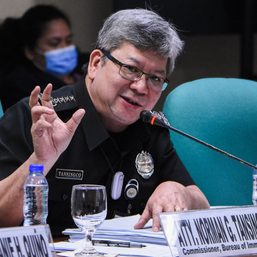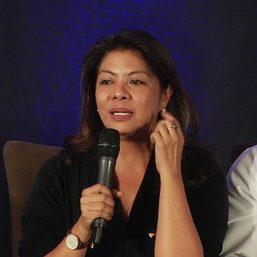SUMMARY
This is AI generated summarization, which may have errors. For context, always refer to the full article.
![[OPINION] UP’s critical brand of education](https://www.rappler.com/tachyon/2021/02/up-brand-education-february-20-2021-1.jpg)
When I was a young instructor at the University, the first thing I would often discuss with my students, mostly freshmen and women, was the motto that would guide our class: “Ruthless criticism of everything existing,” which is a quote by a young Marx.
I would then explain to them what Marx meant by this statement: “Ruthless in two senses: The criticism must not be afraid of its own conclusions, nor of conflict with the powers that be.” This was a very liberal and humanistic Marx. Marx was not yet a Marxist when he wrote this to Arnold Ruge. His statement could even be an excellent byword for a General Education Program based on a liberal arts education.
Today, however, having gotten tired of quoting Marx (but not because I am afraid of military-led red-tagging), I quote Kant’s aude sapere: “Resolution and courage to use one’s own understanding without the guidance of another.” And my students find this Kantian dictum more unsettling than Marx’s, probably because of their adolescent, Oedipal anxieties about authorities.
Looking back, these provocative introductory statements for a class appear revolutionary. But even among radicals, these slogans are questionable for their gendered, Eurocentric bias. So, indeed, education is really ruthless, even for those who say so.
I was fortunate that I took some of my General Education subjects at the University of the Philippines Diliman, though I’d already finished most of them at the seminary where I came from. It was not UP Diliman that initiated me into “activism,” but my seminary. I was a “Christian Marxist” when I transferred to UP because of liberation theology. And I have never regretted having Leftist teachers in the seminary, most of whom were friars. It was good preparation for UP.
But of course, UP provided the much larger intellectual ocean for me to swim in and survey ideas floating side-by-side. My classes in Humanities and Literature, Arts, Sciences, Social Sciences, and Philosophy further opened my perspective to different means of ruthlessly criticizing everything existing. Sociology tied all of these means into a seamless whole.
Honestly – and I believe this is also the experience of other UP graduates – during my undergraduate years, I enthusiastically admired and sought out teachers who were known to be progressives. Every enrolment, I solicited my friends’ wisdom about the ideological backgrounds of prospective teachers: whether they were reactionaries or “Marxist,” or simply “plain” teachers. (Now, with social media, students openly rate their teachers online based on grading.)
I found my undergraduate progressive classes more enjoyable compared to those that simply used the banking method of education. In most cases, of course, I had no choice but to endure reactionary teachers. So, to make these latter classes interesting for me, I often engaged my teachers (except for the “terorista,” as we called them) as well as classmates to debates, putting forward radical assertions and raising questions.
Surprisingly, today my “activist” students are the ones posing debates in my classes, and in most situations, I have to putatively assume the reactionary position to make the discussions livelier. Without these activist students in my classes, our discussions would be as boring as Latin masses. As a rule, activist students are usually analytical, passionate, and engaging. I vouch my teaching experience for this sociological conclusion.
I therefore find it perplexing that today, UP is being tagged as a nucleus of communist recruitment. It’s puzzling because, as a teacher, I could actually quote Marx or Lenin in my classes and even discuss and photocopy PSR (Philippine Society and Revolution) at the Shopping Center openly (before it was razed by fire), without being labeled as communist. I could proclaim proudly that I was a God-denying dialectical materialist in my classes without being called to the office of my Department Chair to explain why I was indoctrinating my students or bestowing 1.0 grades for my “communist” converts!
In my 25 years of teaching in the University, I can say that indoctrination is alien to UP’s culture. When students do not like their teachers or subjects, either the students drop from their classes, or they become recalcitrant and resist the ideas of their teachers. Students come to the University not as blank slates. They already have compacted convictions – remaining Christian to the end of their life being the most resolute one. And I guess this is the culture of UP that we delight in as an academic community. We can argue endlessly about God, but our students remain steadfast to their faith. We can intensely debate the evils of capitalism, yet our students still get swallowed up by giant corporations.
Only an outsider who has never been immersed in this culture could accuse certain UP faculty of indoctrinating their students, forcing them to become dogmatic ideologues. Many students would even tell you that they enjoyed feigning as “communists” during their stay in the University even if they ended up as CEOs of business conglomerates. Others have joined the government bureaucracy, and yet others have remained activists to the very end.
They will tell you that the education they imbibed from UP made them socially responsible, politically informed, and partial towards those whose rights are trampled. And that is not communism. That’s is simply what UP is and will always will be. Ultimately, that is the kind of education that we, members and graduates of UP, are defending unashamedly, and will fight for to the end. – Rappler.com
Gerardo Lanuza, PhD teaches at the Department of Sociology, University of the Philippines-Diliman. He is the chairperson of the Congress of Teachers and Educators for Nationalism and Democracy-University of the Philippines or CONTEND-UP, an organization of activist teachers. Contact information: glanuza@gmail.com
Add a comment
How does this make you feel?
![[OPINION] This is not about UP](https://www.rappler.com/tachyon/2021/01/ISPEAK-UPFIGHT-1280.jpg?fit=449%2C449)


![[Time Trowel] Mentorship matters](https://www.rappler.com/tachyon/2024/04/mentorship-matters.jpg?resize=257%2C257&crop_strategy=attention)


![[OPINION] Badoy’s red-tagging and freedom of expression](https://www.rappler.com/tachyon/2024/04/20240426-Badoy-red-tagging-freedom-expression.jpg?resize=257%2C257&crop_strategy=attention)




There are no comments yet. Add your comment to start the conversation.